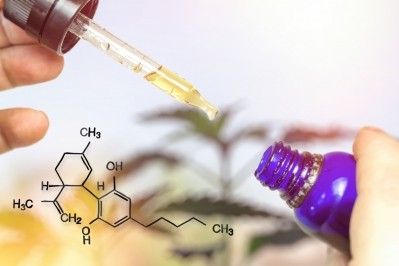From the editor's desk
Nailing down identity, safety and mode of action questions will be keys to finding CBD’s legal path to market

I have been asking three basic question to CBD/hemp promoters I’ve met in recent months. They are: “What is this stuff?” “What is it good for?” and “Is it safe?”
It’s perplexing how few of the companies now in the CBD space can answer those questions definitively. Most of the companies at the recent NoCo Hemp Expo in Denver had gotten the message that it was wise not to make any health claims about their products.
What’s it good for?
Point taken, but a formulator ought to have a reason for why their products are on the market other than consumers seem to want them. One of the early claims that was tried was, “Supports a healthy endocannabinoid system.” Huh?
When pushed for an off the record comment, these same promoters will say they firmly believe in the ingredient’s pain relief properties, its ability to quell inflammation and in the way it alleviates anxiety.
The science is still developing to back those indications. Not that it can’t be done, but so far few companies seem to be stepping up to the plate to fund these studies.
When and if that science gets done, these are still indications for which it will be difficult to create a compliant structure/function claim. I don’t doubt the sincerity of the testimonials I’ve heard about the molecule’s properties. But belief isn’t proof, and I doubt that passion alone will be enough to support the creation of a new category of goods, some way in which hemp/CBD products could make claims for the things that believers think they’re good for.
Nevertheless, there seemed to be consensus among attendees at the recent United Natural Products Alliance member’s meeting in Charleston, SC that there ought to be a legal way for hemp/CBD to go to market.
What is it?
Another question that must be answered is what ‘it’ is. There is at the moment little agreement about what specifications a CBD ought to meet, with one big exception: The federal mandate that to be called ‘industrial hemp,’ the source material may have no more that 0.3% THC (the narcotic fraction) by dry weight.
It’s an open secret that many hemp extracts become ‘hot’ during the manufacturing process, i.e., they rise above this 0.3% level. Some formulators have been cutting the extracts with MCT oil to dilute this back down below the limit. In doing so, the CBD level must be diluted as well. By how much? And what does the resulting chemistry of the ingredient look like?
Hemp/CBD products will have to be fully characterized and some minimum specifications agreed upon before some distinction can be made between them and Epidiolex, the newly approved CBD drug from GW Pharmaceuticals.
Is it safe?
And after we’ve answered the question of what CBD is, we come to whether it is safe. The promoter’s answer to this: “Of course.” That belief thing again.
Thus far, FDA seems to agree with them. Or, better put, the agency has not raised a red flag that these products represent an imminent public health risk. The warning letters from the agency on the subject of CBD have focused on illegal disease claims made on the products. But there have been no consumer warnings to stay away from the ingredient as there have been for others that the agency believes may cause immediate harm.
Nevertheless, recent research from the University of Arkansas (I’ll report on that study this coming week) has found liver damage in mice at high dosages, and GW has found upper hepatotoxicity limits in its research as well.
FDA will need to be satisfied on these kinds of questions before a pathway for the ingredient can be delineated, and it would seem as if this information must be in hand if a new law were to be written.
Upcoming meetings
There is a meeting of the congressional Dietary Supplement Caucus set for Tuesday where lawmaker’s staffs will hear from the trade organizations on the regulatory and business environment for CBD. And FDA has scheduled its own meeting on CBD set for May 31.
These will be first steps for regulators and lawmakers in gathering answers to my three questions. On the surface this would seem to be the work of many months or years. Yet it has been observed that both Senate majority leader Mitch McConnell, R-KY and minority leader Chuck Schumer, D-NY are behind the idea, so a quick legislative answer might be a possibility.
In any case, the category will have to be imbued with a great deal more scientific rigor, more attention to quality and, frankly, just more basic professionalism before regulators can take it seriously.
















